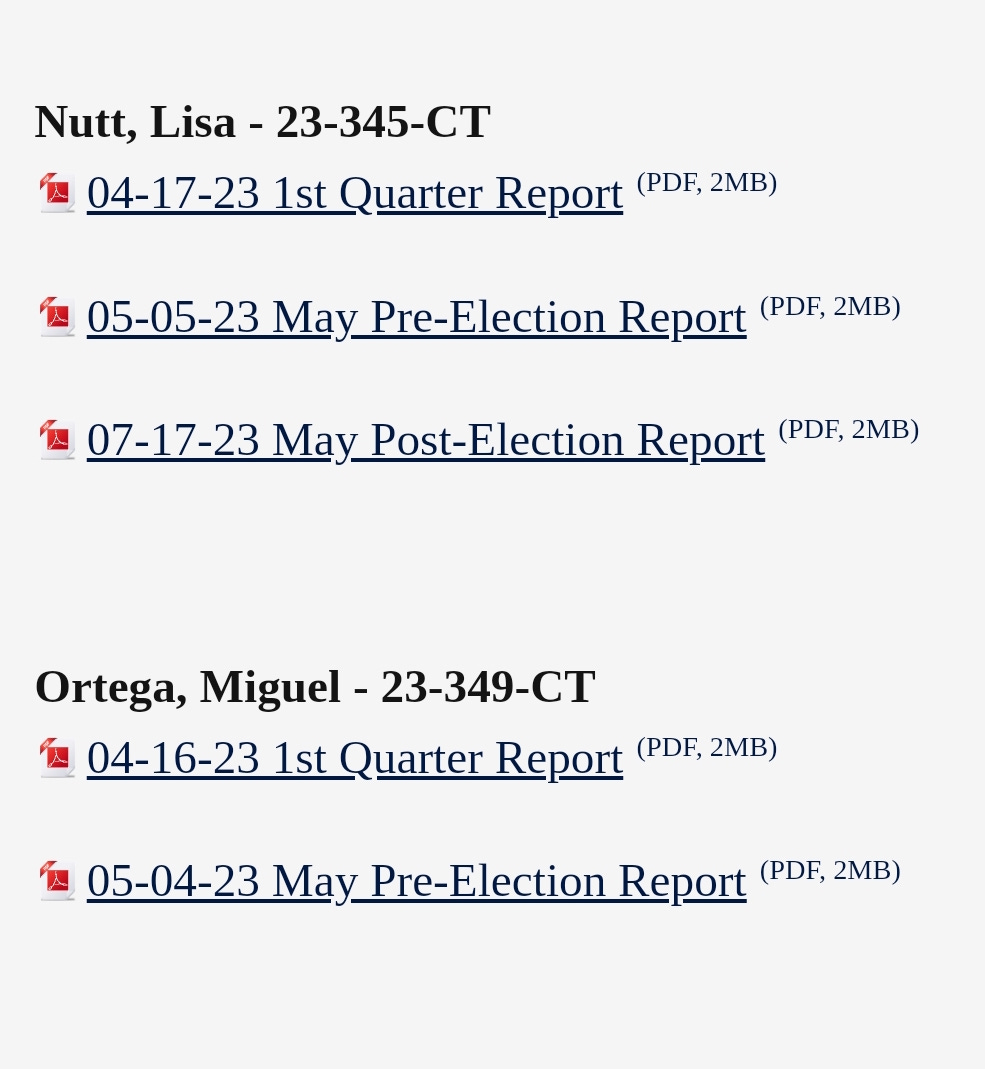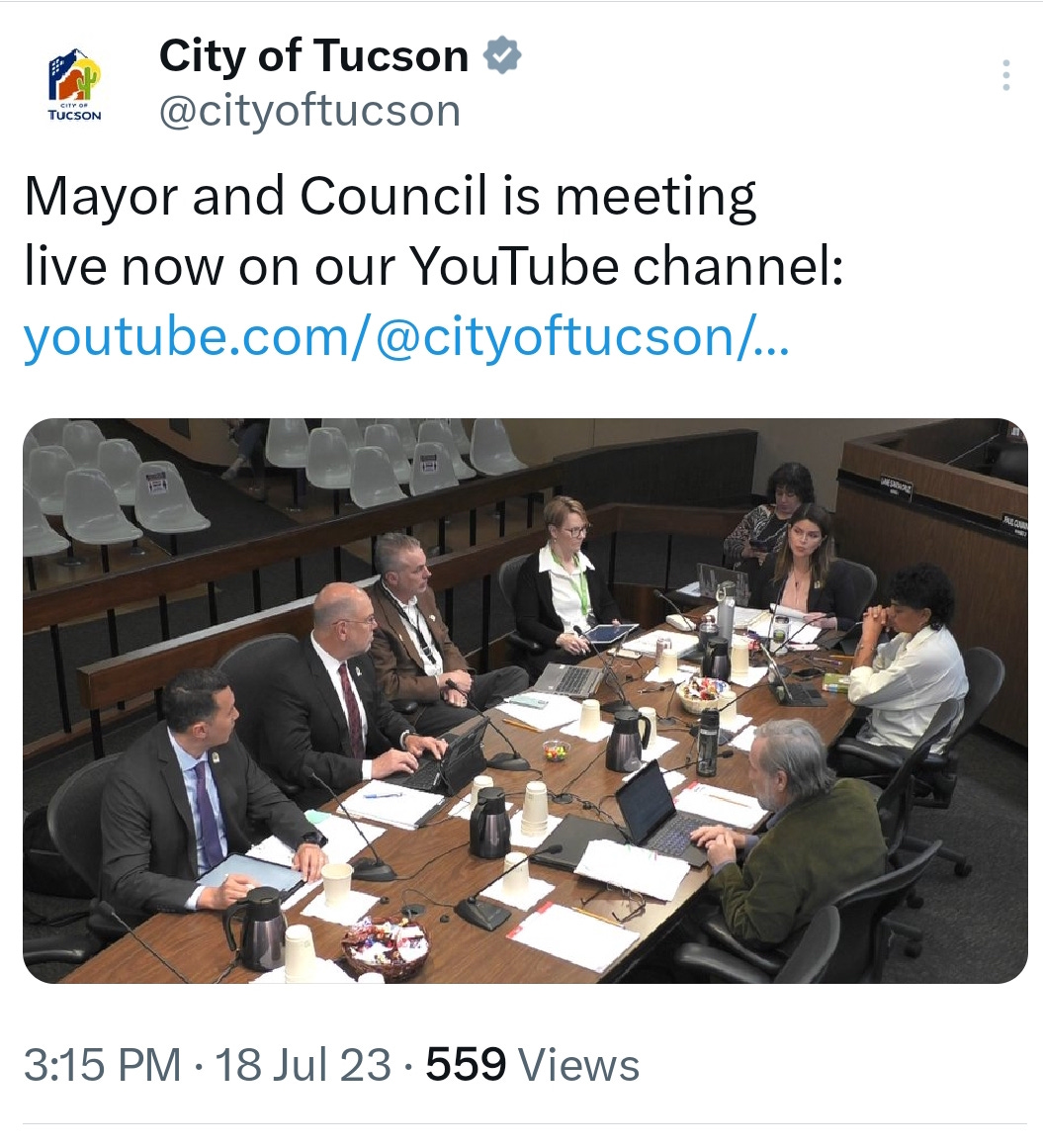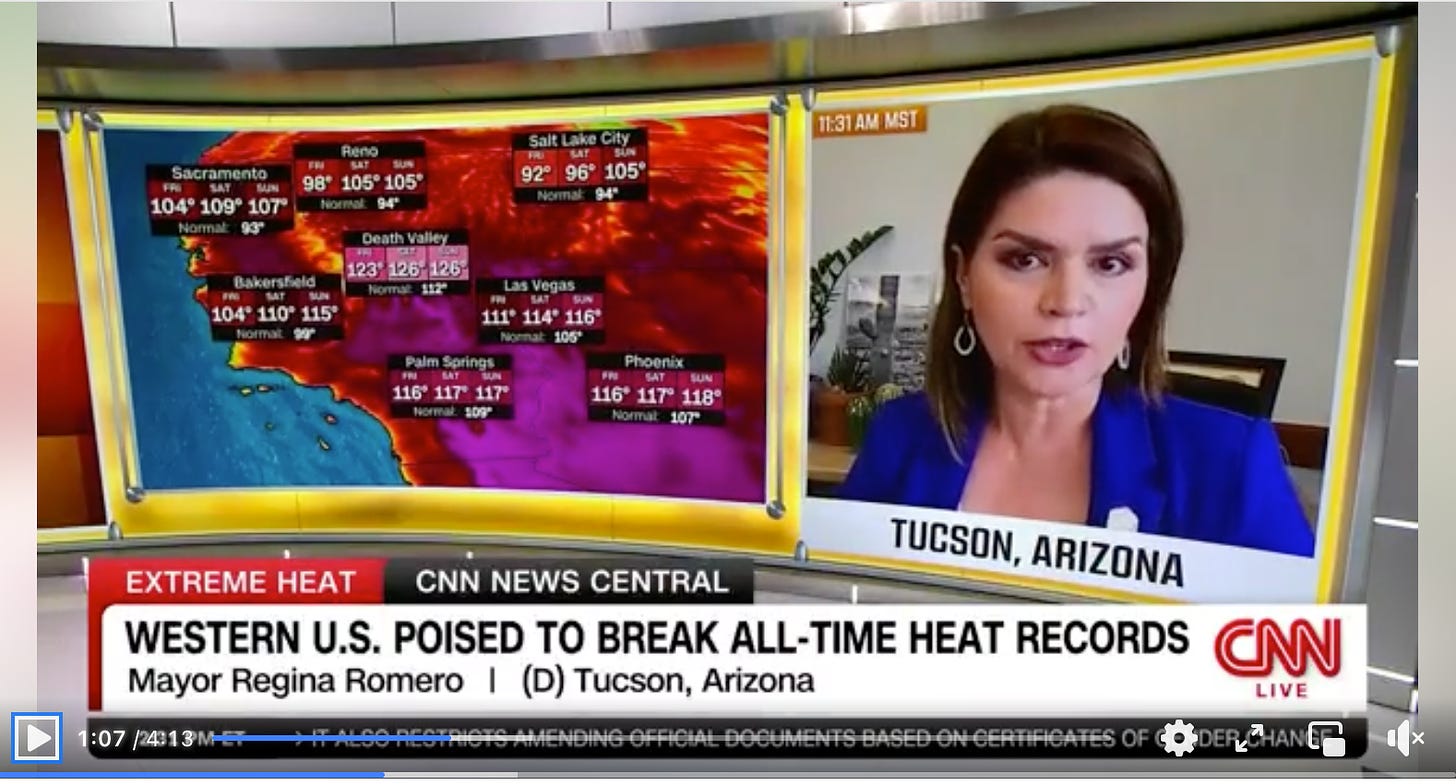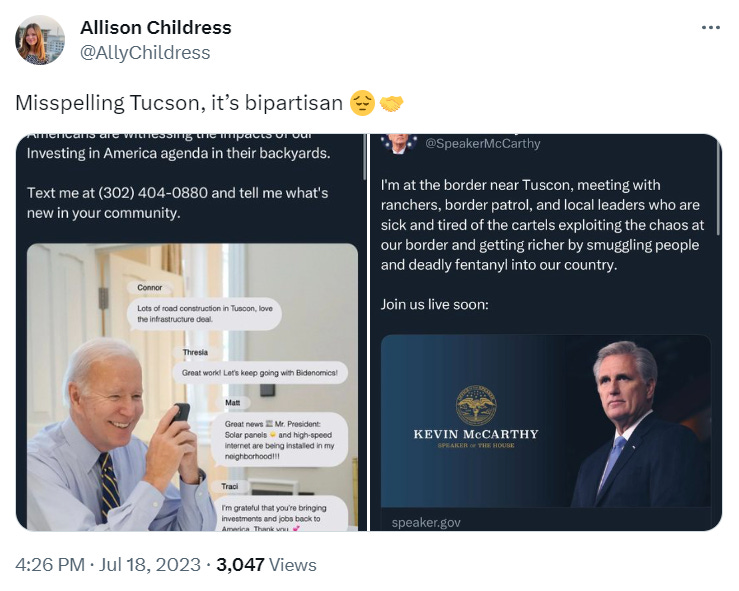The Daily Agenda: Santa Cruz and Romero dominate campaign fundraising
Ortega misses deadline ... Nutt struggles for Tucson cash ... Big bucks for environmental research.
When it comes to getting campaign dollars in Tucson, it’s Lane Santa Cruz, Regina Romero, and then everybody else.
Santa Cruz and Romero accounted for two-thirds of the roughly $320,000 raised by the 12 candidates running for mayor and three city council seats in the August 1 primary.
Santa Cruz’s campaign raised $114,000 as of June 30 for the Democratic primary in Ward 1, thanks in no small part to the $55,000 it received in public matching funds.
It looks like they pounded the pavement and raised $59,000 from individual contributions, according to the campaign finance report they filed Monday.
The Ward 1 race is the most competitive of the four races, so Santa Cruzmay need the $63,000 in cash she has on hand against challenger Miguel Ortega. Then again, we still have no idea how much Ortega raised or who donated to his campaign over the past two months because he hasn’t filed his report.

Ortega was one of two candidates who didn’t meet the Monday deadline to file their campaign finance reports, which updated voters for the first time since early May. Victoria Lem, the Republican candidate in Ward 1, also hadn’t filed as of Tuesday evening.
Apparently, two months wasn’t enough time to fill out a form and send it to the City Clerk’s Office. The last time we heard about Ortega’s finances, he had raised about $4,700.
Romero isn’t facing much competition in the mayoral race, but she still raised $96,000 and has $44,000 in cash on hand, even without any public matching funds.
It seems a little overkill, considering Romero is running unopposed in the Democratic primary and the three people she’ll face in the general election raised a combined total of about $30,000. Republican Janet Wittenbraker raised $13,000 and hasn’t spent any of it, independent Ed Ackerley raised almost $18,000 and has $5,500 on hand and Libertarian Arthur Kerschen hasn’t raised any money at all.
In Ward 2, Democratic challenger Lisa Nutt has the backing of deep-pocketed groups in Phoenix and Chicago, but she seems to be struggling to find financial support from Tucsonans.
Incumbent Paul Cunningham raised $40,000, more than twice the $15,000 that Nutt raised. But they’re both running out of cash quick: Cunningham has less than $9,000 in cash on hand, while Nutt has under $5,000.
Whoever wins the Democratic primary in Ward 2 will face two candidates who haven’t managed to raise much money. Ernie Shack, the Republican candidate, raised about $1,500 and Libertarian Pendleton Spicer raised $185.
In Ward 4, incumbent Nikki Lee is running unopposed in the Democratic primary. She raised almost $20,000 and has $4,500 in cash.
Lee’s haul is small compared to other Democratic candidates, but she might not need more than that. It’s still far more than Ross Kaplowitch, the Republican candidate in Ward 4 who raised $2,800 and has $1,200 on hand.
We’ll keep digging through the reports to see if there’s any funny business (let us know if you spot any shenanigans!), but that’s the broad strokes of who’s got the money in Tucson’s upcoming city election. Voters will get their next view into candidates’ finances on July 22, the deadline for the final report before the election.
Tamale bill veto can’t stop them: After eight years, the Nogales Community Development’s commercial kitchen is tentatively scheduled to open in September, the Nogales International’s Angela Gervasi reports. The kitchen will provide a space for local chefs to prepare and cook food in a certified commercial kitchen, which allows them to sell their products through catering, food trucks, farmers markets, stores and more. NCD began exploring the idea of a commercial kitchen in 2015, holding community meetings to gather feedback about what kind of equipment local chefs and vendors would need in the space.
A star is born: Tucson Mayor Regina Romero appeared on CNN over the weekend, talking with Rahel Solomon about the city’s work to build its heat resiliency and protect residents from extreme heat. Romero touted her climate action plan and cited the city’s progress towards removing diesel buses from its fleet to significantly reduce carbon emissions.
He digs the vibe here: The Pima County Department of Environmental Quality hired a new director, Scott DiBiase, who has worked on air quality issues for decades in Pinal County.
“Pinal and Pima are a little different,” DiBiase said. “With Pima being more progressive and environmentally conscious, that was appealing to me. We have a chance to lower greenhouse gas emissions in the county, and our staff is well-suited to do that.”
Show them the money: The University of Arizona’s Southwest Environmental Health Sciences Center has received a $7.8 million boost in funding from the National Institutes of Health to research environmental and health challenges in the Southwest, UA News’ Jeff Javier writes. With 2.1 billion people around the world living in conditions similar to the Southwest, this environment serves as a microcosm for researching the health effects of climate change through water scarcity and respiratory issues.
Also please show us the money! We’re working towards building a new, sustainable newsroom in Tucson. But just like solving environmental and health challenges, everyone has to pitch in!
In case you missed it: Nonprofit and small developers in Tucson are leaving the federal Low Income Housing Tax Credit program because of how it is structured which could lead to the loss of thousands of affordable housing units, Reia Li reports in the Arizona Luminaria. The program provides tax credits to developers of affordable housing in exchange for a guarantee that the property will provide below-market rents for 30 or more years. But a loophole in the law allows properties to apply to leave after 15 years. Between 2010 and now, Tucson has lost 401 units of affordable housing due to the loophole and it could potentially lose 1,884 more.
Stepping out: Nonprofit and small developers in Tucson are leaving the federal Low Income Housing Tax Credit program because of how it is structured which could lead to the loss of thousands of affordable housing units, Reia Li reports in the Arizona Luminaria. The program provides tax credits to developers of affordable housing in exchange for a guarantee that the property will provide below-market rents for 30 or more years. But a loophole in the law allows properties to apply to leave after 15 years. Between 2010 and now, Tucson has lost 401 units of affordable housing due to the loophole and it could potentially lose 1,884 more.
$1.5 million: That’s the record-setting total of how much candidates and political action committees spent on the 2019 primary election in Tucson.










It sucks that the city's campaign finance reporting system is all non-searchable PDFs. The city's data is much more difficult to analyze than the state data. Wasn't there a plan to have all elections in the state go through the Beacon System after it was overhauled a few years ago?